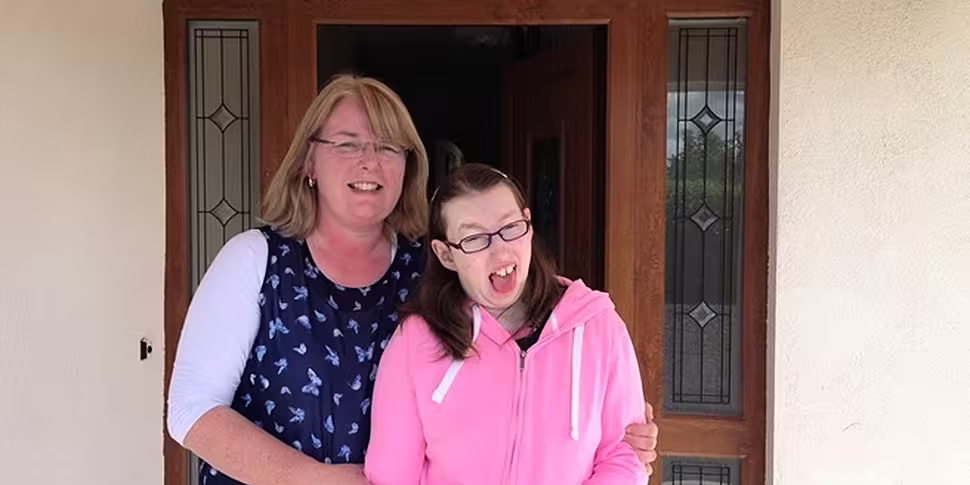We recently revealed that over 20,000 people are currently waiting on assessment or treatment for Speech and Language Therapy on Newstalk Breakfast. This has left many parents of children with special needs fearing for the future as they wait months, and sometimes years, for therapy that is desperately needed.
We spoke to some of those parents.
Breda and Brian Oxley are from just outside Stradbally. The pair have four kids, the eldest of which is Elizabeth who will be 18 in October.
Before, we heard from parents starting out on this journey or in the middle of it and they will speculate about how the lack of services will effect their children as they grow older.
Well for the Oxleys, they see every day what impact that has had on Elizabeth.
She has autism, a form of CP and only a mild intellectual difficulty. She went to an early intervention clinic and got some forms of therapy, but no Speech and Language Therapy. By the time she was three or four, they started to notice that her speech was a real problem. Eventually, she got the blocks of this therapy, 270 minutes over six weeks. That’s it for an entire year.
Here is Breda explaining Elizabeth’s life today, having missed out on the early intervention that’s so important and relying on the paltry 270 minutes per year that the State have provided her with:
Elizabeth is an example of how those few sessions over six weeks are simply not enough for many children.
Her parents continually fought for more, and still do. They still want her to get more access and hope that it can improve her condition and help her to live a little more independently. However, the clock is ticking and as Breda was commented, it’s fine now when the family is still altogether as a unit but what happens when the other kids have grown up and moved out? How can they still care for Elizabeth later in life. That’s the big grey cloud on their horizon that they try not to think about.
Breda also talked to me about butting up against the brick wall that is HSE bureaucracy:
So what options do parents have if they are worried that all they are getting from the State is token support?
Well, they can fight for more therapy hours but the fact is the resources don’t currently exist. There aren’t therapists in the employ in the HSE sitting around doing nothing. They’re working hard but there isn’t enough of them and those that are working are often not specialised enough in one particular area. For example teaching Speech and Language Therapy to a child with autism is very different to a kid with down syndrome or a child with no other issue except a speech impediment.
So that leaves parents the option of paying for therapy themselves.
That’s what Maria and her husband, who are from Kildare have done for their twins. The twins are four and a half but when they were 18 months, she suspected they may have autism.
They had their assessment last July. Since then, they haven’t had a single minute of specific therapy provided to them from the State. Not a second despite their assessment of need clearly setting out that this was vitally important for them.
So that means that Maria and her husband have to do what they can to put in place the structures that the State is failing to provide for them:
In other words, they were running a deficit just to get their children the care that they required. Maria also shared with me how frustrating this all is and how important it is, that intervention happens and happens early:









